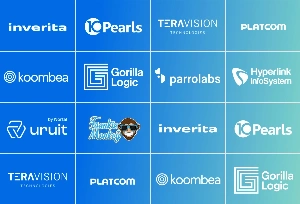You’re undoubtedly aware of the Metaverse because it's all everybody seems to be talking about in recent times. As this online world evolves, so does the demand for metaverse development companies arise. In 2023, the overall market capitalization of Web 2.0 metaverse enterprises was 22.7 billion dollars. It's expected to be the next big thing in technology, with a market size of $119,2 billion by 2028. It's expected to be the next big thing in technology, with a market size of $800 billion by 2024. As our company does not stay away from the trend in this article you can have a deep insight into it.
The Roots of the Metaverse
The Metaverse idea has recently made headlines with Facebook's attempt to rebrand itself as Meta, yet that's not where the story begins. The conception of the Metaverse originated with writer Neal Stevenson in his 1992 novel Snow Crash. The plot told of a virtual reality world controlled by a single dominant enterprise seeking to regulate the livelihood of the people using the service. Social media established itself as an excellent way for companies to find more clients, boost sales, and strengthen confidence and client loyalties. However, Mark Zuckerberg has centered on the Metaverse to bring us into the Internet's next evolutionary phase, in which virtual reality dominates. Members will be able to operate and act in a digital environment and engage more deeply within the Internet than at any time in the past.
The Metaverse Means the Web
Though Meta's company rebranding and emphasis on the technology suggested a future as anti-utopian as ours, this does not automatically suggest that both virtual reality technology and the meta world vision are intrinsically wrong. The way we use this technology defines its moral implications.
Tony Parisi of Unity discusses the different regulations of the meta-universe, which Meta itself as well as other companies appear to be neglected as they struggle for supremacy within the field. According to such regulations, the Metaverse must be an open-source effort, created for everybody, and nobody is supposed to be in charge of the project. The Internet operates under those very rules, which is precisely the reason why Parisi argues that the Metaverse stands for the Internet.
Metaverse Technology Is Important
Businesses must comprehend the range of technologies contributing to the Metaverse and the effect they might bring to consumers, the natural surroundings, and our communities. Through grasping these enabling technologies, companies have the potential to discover new avenues to enhance our communities through the meaningful utilization of virtual reality capabilities to both enrich the universe and support thriving digital economics. Furthermore, insight into these emerging technology opportunities matters as the estimated $48,000 average price of app creation in the U.S. is sure to rise as smarter methods are evolved for consumption in Metaverse initiatives. Owners of businesses should realize where to put their attention in their future action plans.
Companies also have to realize the nature of the content will shift as the Metaverse environment moves forward. Building high-quality strategies for promoting content based on these immersive, virtual worlds is imperative to the growth of the sector.
According to Gartner, 25% of people will spend at least one hour a day in the metaverse world by 2026. So, it comes without surprise that more and more businesses and IT leaders are planning to get in on the lucrative potential of the technology.
Here are examples of how digital industries can benefit from it.











_1764586939-small.webp)